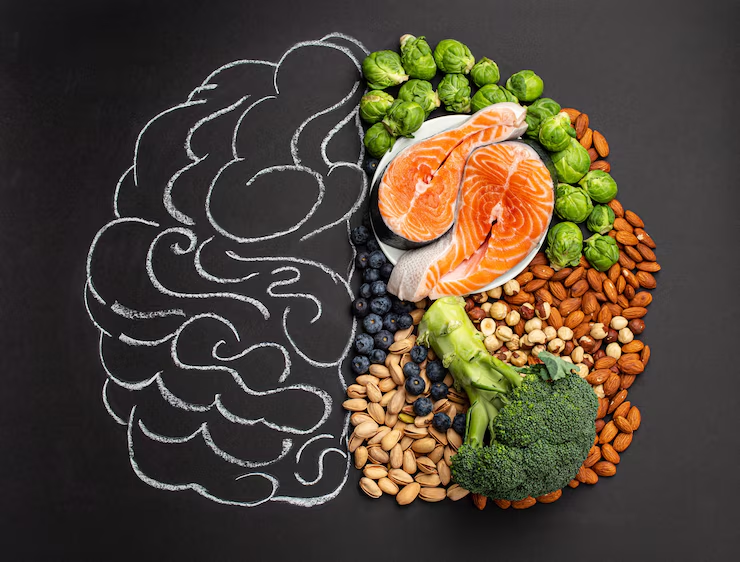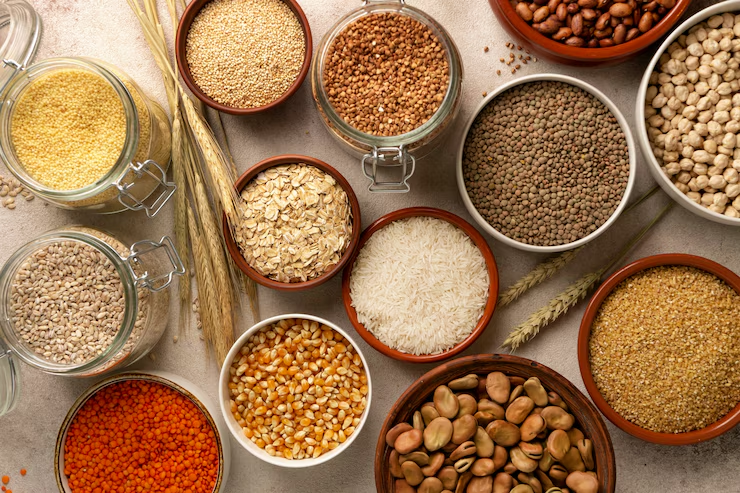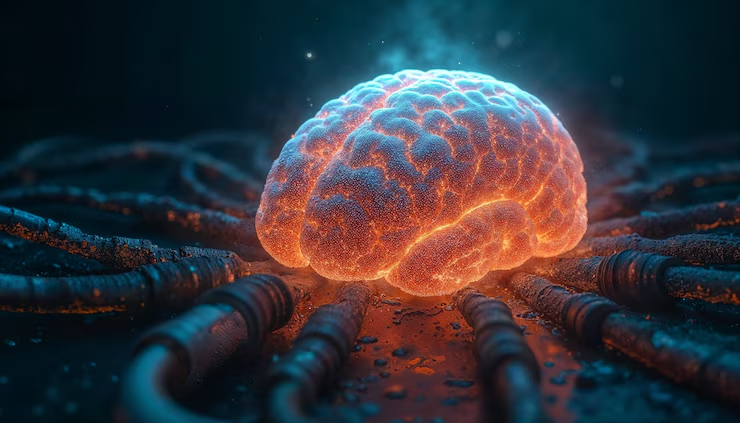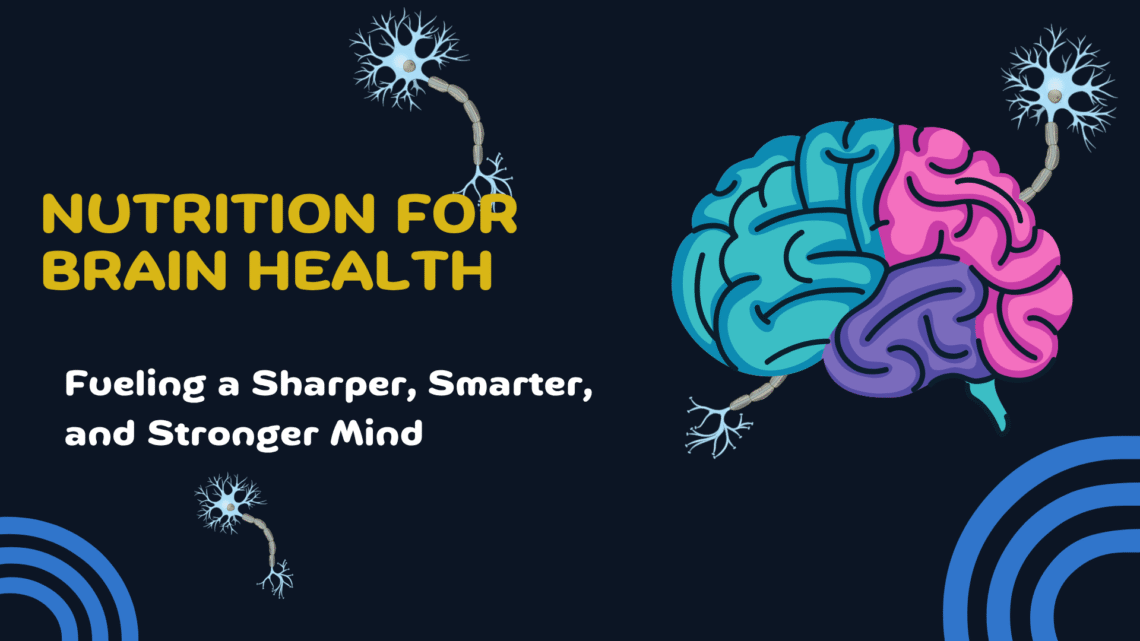Introduction
The brain is the command center of the body, controlling everything from thoughts and emotions to movement and memory. While it may only weigh about 3 pounds, it consumes roughly 20% of the body’s energy. That energy—and optimal brain function—comes directly from the food you eat. Nutrition plays a pivotal role in brain health, influencing cognitive performance, mood, memory, and even long-term neurological health.
This comprehensive guide explores the link between nutrition and brain health, the essential nutrients your brain needs, how poor eating habits affect mental function, and 8 powerful nutrition tips to fuel your mind for life.
🧠 The Brain–Nutrition Connection
Your brain never stops working, even while you sleep. It needs a constant supply of fuel, and that fuel comes from your diet. But not all foods offer the same brain-boosting benefits. The quality of what you eat directly affects the structure and function of your brain and, ultimately, your mental performance.

How Nutrition Affects the Brain:
- Enhances memory, learning, and attention
- Supports neurotransmitter production (e.g., serotonin, dopamine)
- Protects against age-related cognitive decline
- Reduces the risk of neurodegenerative diseases (like Alzheimer’s)
- Influences mood and stress response
🧩 Essential Nutrients for Brain Function
To keep your brain functioning at its best, it requires a consistent supply of essential nutrients. Nutrition for brain health isn’t about one single superfood—it’s the combination of vitamins, minerals, antioxidants, and healthy fats that work together to support memory, focus, and long-term cognitive performance.
Some of the most vital nutrients include omega-3 fatty acids, which help build brain cell membranes and improve communication between neurons. B vitamins—especially B6, B12, and folate—are crucial for energy production and neurotransmitter function. Antioxidants like vitamins C and E protect brain cells from oxidative damage, while minerals such as magnesium, zinc, and iron play key roles in nerve function and oxygen delivery.
Incorporating a balanced variety of these nutrients into your daily meals is the foundation of effective nutrition for brain health. A well-fed brain is sharper, more focused, and better equipped to handle stress, aging, and mental challenges.
1. Omega-3 Fatty Acids
Found in fatty fish like salmon, walnuts, flaxseeds. Omega-3s build brain cell membranes and support communication between neurons.
2. Vitamin B Complex (B6, B12, Folate)
Crucial for energy production, memory, and reducing brain fog. Found in leafy greens, eggs, whole grains, and legumes.
3. Antioxidants (Vitamin C, E, Polyphenols)
Protect the brain from oxidative stress and free radical damage. Found in berries, citrus fruits, dark chocolate, and green tea.
4. Magnesium
Essential for nerve transmission and neuroplasticity. Found in nuts, seeds, bananas, and spinach.
5. Choline
Supports memory and learning. Eggs are the richest natural source.
6. Iron & Zinc
Vital for cognitive development and attention regulation. Found in red meat, legumes, seeds, and shellfish.
🧠 How Poor Diet Impacts Brain Health
While nutrition for brain health can enhance cognitive performance, poor dietary choices can have the opposite effect. The brain is highly sensitive to what we eat, and consistently fueling it with low-quality food can interfere with its ability to function properly. A nutrient-poor diet deprives the brain of what it needs to stay sharp, focused, and resilient.

Diets high in processed foods, added sugars, and unhealthy fats have been linked to inflammation in the brain, which may impair memory, mood, and learning ability. These foods can also cause blood sugar spikes and crashes, leading to fatigue, irritability, and reduced mental clarity.
Over time, poor nutrition for brain health may increase the risk of serious conditions like depression, anxiety, and cognitive decline. Making healthier food choices not only boosts short-term mental performance but also protects your brain as you age—making diet a powerful tool for long-term brain wellness.
- Increase inflammation in the brain (Nutrition for Brain Health)
- Impair memory and cognitive function
- Raise the risk of depression and anxiety
- Accelerate mental aging
- Affect sleep and concentration
Ultra-processed foods can even shrink certain brain regions over time—especially those responsible for emotional regulation and decision-making.
✅ Top 8 Nutrition Tips for Brain Health
✅ 1. Eat More Fatty Fish
Fatty fish like salmon, sardines, and mackerel are packed with DHA and EPA, two types of omega-3 fatty acids critical for building brain cells. Regular intake improves memory, mood, and protects against cognitive decline.
🧠 Try This: Eat fish 2–3 times a week or supplement with high-quality fish oil.
✅ 2. Fill Up on Leafy Greens
Leafy green vegetables like spinach, kale, collard greens, and broccoli are among the most powerful foods you can include in your diet for overall well-being. When it comes to nutrition for brain health, these vegetables provide a rich combination of brain-protective nutrients that help sharpen your mind and support cognitive longevity.
They are packed with folate, vitamin K, lutein, and beta-carotene—all of which contribute to improved memory, better learning capacity, and reduced brain aging. Folate, in particular, is known to help in neurotransmitter function, while vitamin K supports healthy brain cell structure and function.
Adding a variety of these greens into your daily meals is a simple yet highly effective strategy to enhance nutrition for brain health. Whether enjoyed in salads, smoothies, or sautés, these vegetables fuel your brain with the nutrients it needs to stay sharp, focused, and resilient throughout life.
🧠 Tip: Include a cup of greens daily—smoothies, soups, salads, or sautés.
✅ 3. Snack on Berries and Dark Chocolate

When it comes to nutrition for brain health, certain snacks do more than satisfy cravings—they actively support cognitive performance. Berries, such as blueberries, strawberries, and blackberries, are packed with flavonoids and antioxidants that help protect brain cells from oxidative stress and improve the way they communicate with each other.
These compounds have been shown to enhance memory, support learning, and even slow age-related cognitive decline. Regular consumption of berries has been linked to improved focus and reduced inflammation in the brain—making them a delicious and powerful addition to any brain-boosting diet.
Another excellent treat for nutrition for brain health is dark chocolate, especially varieties with 70% cacao or higher. It increases blood flow to the brain, supports better oxygen delivery, and stimulates the release of neurotransmitters like serotonin and endorphins, which enhance mood and alertness. A small serving can provide both pleasure and mental performance benefits.
🧠 Smart Snack: A handful of blueberries and a square of dark chocolate as a daily treat.
✅ 4. Add Turmeric to Your Diet
A powerful spice in the world of nutrition for brain health is turmeric, known for its bright yellow color and potent healing properties. Its active compound, curcumin, has been extensively studied for its ability to support brain function and emotional well-being.
Curcumin is a strong anti-inflammatory and antioxidant that may cross the blood-brain barrier—a unique feature that allows it to directly benefit brain cells. It helps reduce inflammation, which is often linked to mood disorders, and can support relief from symptoms of depression and anxiety.
In addition, curcumin has shown potential in promoting the growth of new brain cells and enhancing mood and memory. Adding turmeric to your meals—such as soups, teas, or rice dishes—is a simple and flavorful way to elevate your nutrition for brain health. For improved absorption, pair it with black pepper, which contains piperine to boost curcumin’s bioavailability.
Would you like to continue with more sections?
🧠 Golden Idea: Add turmeric to soups, rice, eggs, or drink golden milk.
✅ 5. Include Whole Grains for Steady Energy

Your brain relies on a steady supply of glucose as its primary energy source. However, the type of carbohydrate you consume makes a significant difference. For optimal nutrition for brain health, choosing complex carbohydrates—like those found in whole grains—is essential for maintaining consistent energy and focus.
Foods such as oats, brown rice, quinoa, and whole wheat provide slow-digesting carbs that help stabilize blood sugar levels. This gradual release of glucose supports sustained concentration and mental clarity throughout the day, preventing the spikes and crashes often caused by refined sugars and processed snacks.
Incorporating whole grains into your meals is a smart and simple way to support nutrition for brain health. They not only fuel your brain more efficiently but also supply B vitamins and fiber, which further enhance mood, memory, and overall cognitive function. A brain that runs on steady energy is more productive, resilient, and focused.
🧠 Better Breakfast: Start your day with oatmeal, nuts, and fruit instead of sugary cereals.
✅ 6. Drink Green Tea for Focus
One of the most underrated yet powerful beverages for nutrition for brain health is green tea. Unlike coffee, which can sometimes cause jitteriness or energy crashes, green tea provides a smoother, more balanced form of mental stimulation. This is thanks to its unique compound, L-theanine, an amino acid that promotes a calm but alert mental state.
L-theanine works by increasing alpha brain waves, which are linked to relaxation and focus. When combined with the moderate dose of caffeine in green tea, it enhances mental alertness without the stress or anxiety often associated with high-caffeine drinks. This makes green tea an ideal choice for improving attention and mood.
In addition to L-theanine, green tea is packed with antioxidants, particularly catechins, which help protect brain cells from oxidative damage. Regularly drinking green tea can contribute to better memory, slower brain aging, and overall improved nutrition for brain health over time.
🧠 Tip: Replace your second cup of coffee with a cup of green tea.
✅ 7. Stay Hydrated
Hydration is a vital yet often overlooked aspect of nutrition for brain health. Your brain is made up of approximately 75% water, and even mild dehydration can negatively affect its performance. Without enough fluids, you may experience reduced concentration, mental fatigue, short-term memory lapses, and slower cognitive processing.
Water helps transport nutrients to brain cells and removes waste products that can build up and impair function. It also aids in maintaining the balance of electrolytes necessary for nerve signaling. When you’re dehydrated, these critical processes are disrupted, leading to sluggish thinking and low energy.
To support proper nutrition for brain health, aim to drink at least 8 glasses of water per day. Increase your intake in hot weather, during exercise, or when consuming dehydrating beverages like coffee or alcohol. Staying well-hydrated ensures your brain stays clear, focused, and capable of performing at its best.
🧠 Hydration Hack: Aim for at least 8 glasses of water per day. Add lemon, cucumber, or mint for flavor.
✅ 8. Limit Sugar and Processed For
Excessive sugar intake and a diet high in ultra-processed foods can significantly harm your brain. These foods are linked to impaired memory, mood swings, and an increased risk of depression. Over time, they contribute to chronic inflammation, oxidative stress, and even damage the structure and function of brain cells—all of which weaken nutrition for brain health.
Processed snacks, sugary beverages, and refined carbs offer little nutritional value and can disrupt blood sugar levels, leading to energy crashes and poor concentration. Such dietary habits may also interfere with the balance of the gut microbiome, which plays a vital role in brain function and mood regulation.
To support nutrition for brain health, replace processed foods with whole, nutrient-rich alternatives. Snack on nuts, yogurt, berries, or fresh fruit instead of candy or chips. Choosing real, unprocessed foods can protect your brain, enhance mental clarity, and support emotional well-being over time.
🍽️ Brain-Boosting Sample Meal Plan
Breakfast
- Oatmeal with chia seeds, blueberries, walnuts
- Green tea
Snack
- Boiled egg + a piece of dark chocolate
Lunch
- Grilled salmon salad with spinach, avocado, olive oil dressing
- Whole grain toast
Snack
- Greek yogurt with flaxseeds and honey
Dinner
- Stir-fried broccoli and tofu or chicken
- Brown rice with turmeric
- Glass of water with lemon
🧠 Brain Health Through the Lifespan
👶 Children
Proper nutrition is crucial for brain development. Omega-3s, iron, and zinc support learning and focus.
👩 Adults
Maintain cognitive sharpness, reduce stress, and improve mental performance with a nutrient-rich diet.
👵 Seniors
Focus on antioxidant-rich and anti-inflammatory foods to reduce the risk of Alzheimer’s and memory loss.
🧬 Emerging Research: The Gut–Brain Connection

The gut-brain axis refers to the complex, two-way communication system between your digestive tract and your brain. This connection highlights how gut health doesn’t just impact digestion—it also plays a critical role in mental and emotional well-being. Recent studies show that a healthy gut can enhance nutrition for brain health, affecting how you think, feel, and remember.
At the core of this connection is your gut microbiome, the trillions of beneficial bacteria living in your intestines. These microbes help regulate neurotransmitters like serotonin and dopamine, which influence mood, focus, and cognitive performance. An imbalance in gut bacteria can contribute to brain fog, anxiety, and even memory issues.
To improve nutrition for brain health, nourish your gut with fiber-rich fruits, vegetables, fermented foods like yogurt or kefir, and prebiotics found in garlic, onions, and bananas. A balanced gut supports a sharper, more resilient, and emotionally stable brain.
⚠️ Foods That Harm Brain Health
Avoid or limit the following:
- Refined sugars (candy, soda, pastries)
- Processed meats (hot dogs, bacon)
- Trans fats (found in fried and packaged foods)
- Excess alcohol
- Artificial sweeteners (linked to mood swings and anxiety)
These foods increase oxidative stress and inflammation, both of which are harmful to the brain.
🧘♀️ Other Lifestyle Factors That Support Brain Health
While nutrition is key, it’s only part of the puzzle. Combine it with:
- Regular physical activity
- Quality sleep (7–9 hours/night)
- Mindfulness and meditation
- Challenging the brain (puzzles, reading, learning)
- Social interaction
Together, these habits create a brain-friendly lifestyle that supports memory, clarity, and emotional well-being.
📌 Conclusion
Your brain is your body’s most powerful organ, controlling everything from thoughts and emotions to memory and movement. To keep it functioning at its best, what you eat truly matters. A nutrient-rich diet plays a foundational role in supporting both short-term performance and long-term cognitive health. That’s why focusing on nutrition for brain health is essential at every stage of life.
The right foods can sharpen memory, enhance concentration, elevate mood, and reduce the risk of conditions like Alzheimer’s or depression. Nutrients like omega-3 fatty acids, antioxidants, B vitamins, and healthy fats provide the brain with the fuel it needs to function optimally and stay resilient under stress.
By making intentional, brain-friendly food choices today, you’re investing in your mental clarity and cognitive strength for the future. Prioritizing nutrition for brain health helps protect your mind, improve daily functioning, and promote a healthier, sharper you—both now and for years to come.
Start small: swap sugar for berries, switch to whole grains, add fatty fish, and stay hydrated. Over time, these habits will transform how your mind feels and functions.
🧠 Quick Recap: 8 Nutrition Tips for Brain Health
- Eat fatty fish weekly
- Add leafy greens daily
- Snack on berries and dark chocolate
- Include turmeric in meals
- Choose whole grains for energy
- Drink green tea for focus
- Stay well-hydrated
- Limit sugar and processed food
1. What is the best diet for brain health?
The best diet for nutrition for brain health is rich in whole, unprocessed foods—especially those containing omega-3 fatty acids, antioxidants, B vitamins, fiber, and healthy fats. Diets like the Mediterranean or MIND diet have been shown to support cognitive function, memory, and emotional balance.
2. Which foods should I avoid for better brain health?
To protect brain health, avoid or limit processed foods, refined sugars, trans fats, and excessive alcohol. These foods can increase inflammation, impair memory, and raise the risk of mental decline over time—negatively impacting nutrition for brain health.
3. How does hydration affect brain function?
Staying hydrated is vital for nutrition for brain health. Even mild dehydration can cause fatigue, difficulty concentrating, and short-term memory problems. Water helps deliver nutrients to brain cells and flush out toxins.
4. Can supplements improve brain health?
Supplements like omega-3, B-complex vitamins, vitamin D, and magnesium can help fill nutritional gaps. However, whole foods should be the primary source of nutrients. Always consult a doctor before starting supplements for nutrition for brain health.
5. How soon can I see improvements from eating brain-healthy foods?
Some effects, like improved focus and mood, may appear within days or weeks of better eating habits. Long-term benefits, such as reduced risk of cognitive decline, develop over time with consistent attention to nutrition for brain health.





